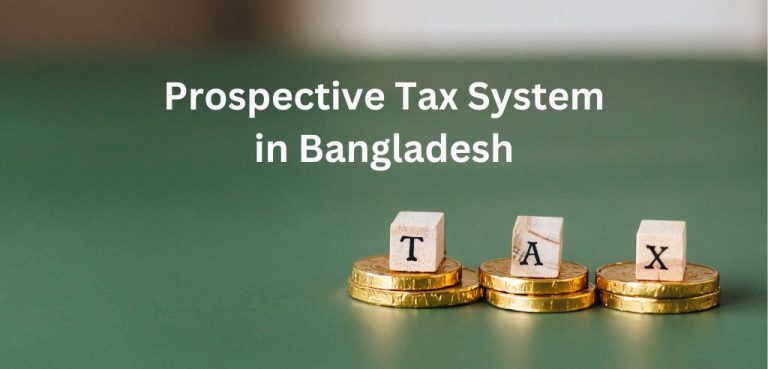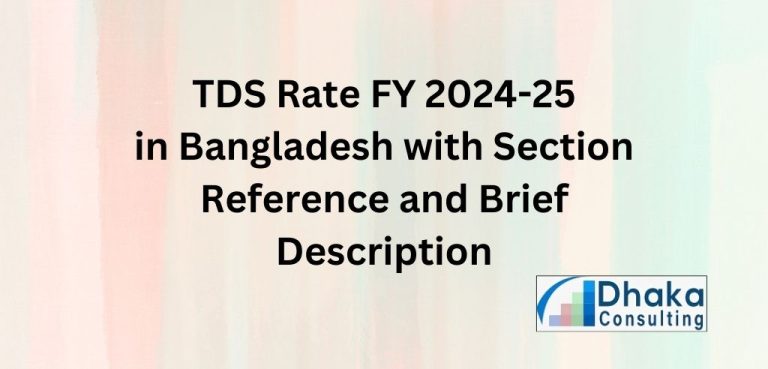1. Overview of the Tax System in Bangladesh
Bangladesh’s tax system is managed by the National Board of Revenue (NBR), which oversees both direct and indirect taxes. Key taxes include:
- Income Tax: Levied on income derived from various sources.
- Value Added Tax (VAT): Applied to the sale of goods and services.
- Customs Duties: Taxes on imports and exports.
2. Key Tax Considerations for Construction Projects
2.1 Income Tax
Corporate Tax Rate: For construction companies, the corporate tax rate is generally 25%. However, companies meeting certain criteria may qualify for tax incentives or reduced rates.
Tax Incentives: There are tax incentives available for certain types of construction projects, such as those involving infrastructure development. Check if your project qualifies for any exemptions or reduced rates.
2.2 VAT
VAT Rate: Construction services are typically subject to a VAT rate of 15%. However, specific exemptions or reduced rates may apply based on the nature of the project.
Input VAT Credit: Ensure proper documentation to claim input VAT credits for expenses related to construction materials and services.
2.3 Customs Duties
Import Duties: If importing construction materials or machinery, be aware of the applicable customs duties. There are often specific duty exemptions or reduced rates for essential construction materials.
2.4 Withholding Tax
Contractor Payments: Withholding tax may apply to payments made to contractors. The standard rate is 5% for resident contractors and 10% for non-resident contractors.
3. Key Tax Considerations for Power Sector Projects
3.1 Income Tax
Corporate Tax Rate: Power sector companies often benefit from special tax incentives. For example, renewable energy projects might be eligible for reduced tax rates or tax holidays.
Depreciation: Accelerated depreciation rates may be available for power generation equipment, allowing for quicker recovery of costs.
3.2 VAT
VAT Exemptions: Certain power sector activities may be exempt from VAT, particularly if the project involves generating electricity for public use.
3.3 Customs Duties
Equipment Imports: Power sector projects often involve importing specialized equipment. Check for any customs duty exemptions or reduced rates available for power generation machinery.
3.4 Withholding Tax
Payments to Foreign Entities: Withholding tax rates on payments to foreign suppliers or consultants can vary. Ensure compliance with the double taxation agreements (DTAs) Bangladesh has with other countries.
4. Tax Planning Strategies
4.1 Leverage Tax Incentives
Incentives for Infrastructure and Renewable Projects: Explore tax incentives for infrastructure development and renewable energy projects. These may include tax holidays, reduced tax rates, or exemptions on specific expenses. But all the exemptions and reduced rate tax vary on an activity basis. We can enlighten that upon receiving the total business planning of the investors.
4.2 Tax Planning
Make a Tax Plan: Company management should make plan before engaging to any business / Contract signing to avoid tax or get maximum tax benefits when the transaction occurs.
4.2 Optimize VAT Credits
Document Expenses: Maintain thorough records of all VAT able purchases to maximize input VAT credits. This includes receipts, invoices, and contracts related to construction materials and services.
4.3 Plan for Depreciation
Accelerated Depreciation: Utilize accelerated depreciation methods for eligible assets to reduce taxable income in the short term.
4.4 Consider Transfer Pricing
Intercompany Transactions: For multinational companies, ensure compliance with transfer pricing regulations to avoid disputes and penalties.
4.5 Regular Tax Audits
Internal Reviews: Conduct regular internal tax audits to ensure compliance and identify potential tax-saving opportunities.
5. Compliance Requirements
5.1 Filing and Payment
Income Tax Returns: File annual income tax returns by the due date, ensuring all relevant deductions and exemptions are claimed.
VAT Returns: Submit VAT returns quarterly, detailing both output VAT collected and input VAT claimed.
Customs Declarations: Ensure accurate customs declarations for imported materials and machinery.
5.2 Documentation
Maintain Records: Keep detailed records of all transactions, contracts, and financial documents. This includes VAT invoices, customs declarations, and tax return filings.


